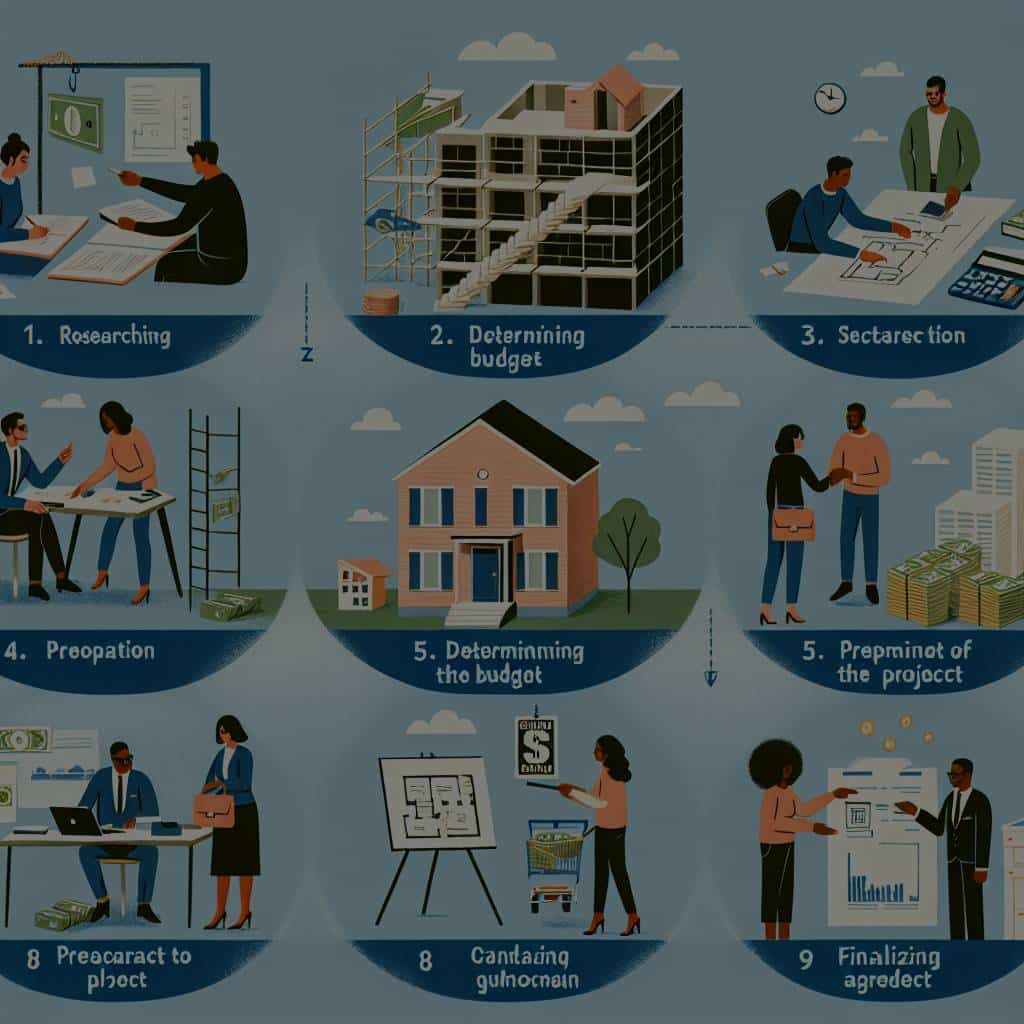How to Secure Real Estate Financing for Self-Build Projects?

Embarking on a self-build project can be both an exhilarating and daunting undertaking. Amid all the excitement of drafting blueprints and choosing fittings, there’s one critical factor that will significantly impact your project, and that’s financing. Securing a loan to finance your self-build project differs hugely from a typical mortgage for an existing house. But fear not, this comprehensive guide will shed light on the fascinating world of construction loans and show you how to navigate this territory like a pro.
Understanding Construction Loans
Before you begin your self-building journey, it’s crucial to understand what construction loans are and how they function. Unlike traditional mortgages, construction loans are short-term loans that cover the costs of materials and labor for new home construction.
Have you seen this : How to Implement Passive Solar Design in Urban Homes?
Essentially, if you’re seeking to build a house from scratch, you’re more likely to secure a construction loan than a regular mortgage. Lenders consider these loans risky, hence the higher interest rates compared to traditional mortgages. Your credit score and the projected value of the finished house will heavily influence the lender’s decision.
Navigating the Loan Application Process
The process to secure a construction loan can be rigorous and strenuous. However, being prepared will make the journey smoother. First, you need to present a detailed construction plan to your prospective lender. This should include your budget, project timeline, and a comprehensive description of the materials required for the build.
Also to see : What Strategies Can Be Employed to Reduce Gentrification Impacts in City Regeneration?
The lender also assesses the contractor or builder you’ve chosen for your project; they need to be licensed and deemed reputable. Your credit score and history also come under scrutiny. A higher score improves your chances of approval and could earn you a lower interest rate.
Land Acquisition and its Influence on Loan Approval
The land on which you plan to construct your house plays a significant role in your loan application. If you already own the land, lenders consider that as your down payment, which may influence your loan’s terms and conditions. If you’re yet to purchase the land, your loan could include the land acquisition costs. Remember, lenders will appraise the land and the projected value of the completed house before deciding on your loan application.
Managing your Loan Payments
Construction loans are usually set up with a 5-7 year term, and you pay only the interest during the construction process. Once the house is complete, you will need to pay off the full amount of the loan. Most homeowners either sell their current house to pay off the loan or convert the construction loan into a traditional mortgage.
Remember, managing your payments effectively is crucial. Construction can often come with unforeseen costs, so ensure you have a financial buffer to handle any unexpected expenses during the building process.
Choosing the Right Lender for Your Project
Securing the right lender for your construction loan is as critical as finding the perfect blueprint for your house. Different lenders offer different loan packages with varying interest rates and terms. It’s advisable to shop around, compare several lenders before making a decision.
Consider not only the lender’s terms but also their experience in construction loans and their willingness to assist you throughout the construction process. The right lender will guide you through the loan process, ensuring you understand every step, from the initial application to the final loan payment.
Securing financing for a self-build project might seem like a daunting task, but with the right knowledge and preparation, you can navigate this process successfully. Understanding how construction loans work, being prepared for the loan application process, managing your loan payments effectively, and choosing the right lender for your project are key steps in making your dream house a reality. With these insights, you’re now well-equipped to embark on your self-build journey.
Evaluating Different Financing Options
Exploring the many financing options that exist within the real estate market is integral to securing the best loan for your self-build project. The construction loan, as previously mentioned, is a popular choice for many, but it’s not the only option available to you.
There are two main types of construction loans: construction-only loans and construction-to-permanent loans. A construction-only loan is a short-term loan that must be paid in full upon the completion of the project. This type of loan is a good fit for those who have significant cash on hand or have a plan to sell their current home soon after the completion of the new one.
The construction-to-permanent loan, also known as a one-time-close loan, starts as a loan during the construction period but converts into a traditional mortgage after completion of the project. This type of loan is more suitable for those who want a steady interest rate and a more manageable, long-term payment plan.
An owner-builder loan is another financing option to consider if you are a licensed contractor planning to do most of the construction work yourself. It’s important to note, though, that this loan is considered to have higher risk and thus may come with a higher interest rate.
Furthermore, government-backed loans such as FHA (Federal Housing Administration) and VA (Veterans Affairs) loans also offer construction loan options with relatively lower interest rates and down payment requirements. However, they come with their own sets of criteria and limitations that you should thoroughly research before applying.
Conclusion: Turning Your Self-Build Dream into Reality
In conclusion, securing real estate financing for your self-build project is a complex process that requires careful planning and consideration. From understanding the intricacies of a construction loan to evaluating various financing options, each step of the journey is crucial in turning your dream into a reality.
Remember that your credit score, the value of your land, the reputation of your builder, and the robustness of your construction plan all play significant roles in the lender’s decision. Being well-prepared by having a clear plan, a good credit score, and most importantly, a trusted lender will ease the journey of securing the necessary funds.
Choosing the right lender is as important as choosing the right type of loan. Different lenders offer different packages, and it’s important to shop around and compare to find the best fit. A lender who has a wealth of experience in construction loans and who demonstrates a willingness to guide you through the process would be a good choice.
Lastly, managing your loan payments effectively will ensure that your construction process runs smoothly from start to finish. Keep in mind that construction often entails unforeseen costs, so it’s crucial to have a financial buffer in place.
Securing a construction loan for a self-build project may seem like a daunting task, but equipped with the right knowledge, you will be in a position to navigate this process successfully. Here’s to making your dream home a reality.
